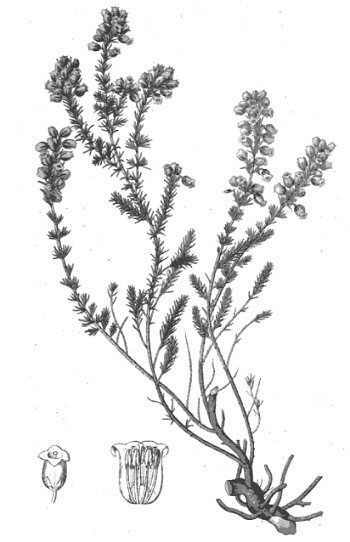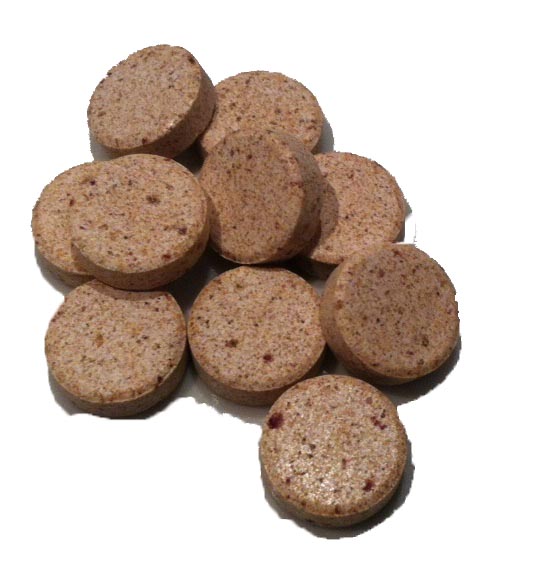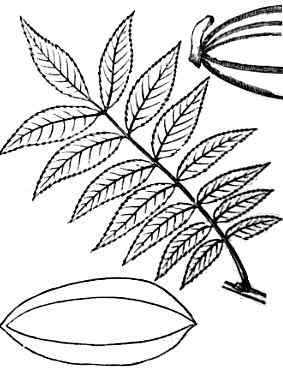MEDICINAL PROPERTIES OF HEATHER (CALLUNA VULGARIS)
Heather for the kidneys and urinary system
Heather is a plant with very recognized diuretic properties. The purifying power, which gives it its richness in flavonoids, added to the antiseptic values of the arbutin and the sedative powers provided by some undetermined principle, makes it a very suitable medicinal plant in the treatment of urinary problems.
Among the major anomalies that can be treated, we want point out the following:
Remedies with heather flowers in internal use
- Mild urinary diseases: Heather properties can be used in the treatment of mild diseases of the urinary system such as urethritis, nephritis, cystitis, prevention of kidney stones. (1 tablespoon and a half of dried flowers per cup of water, let stand 10 minutes, take three cups a day)
* Do not apply if it has been confirmed that there are stones in the kidneys or in the gallbladder. (This treatment is only indicated to expel the grit from the kidneys). In case of stones in the gallbladder, the use of this plant may favor obstruction of the bile ducts.
* Do not administer in serious infections or with symptoms like dizziness, blood in the urine, pain when urinating, etc (consult with the doctor previously)
- Retention of liquids: The diuretic capacity of heather helps to improve the symptoms of diseases such as dropsy, arthritis or gout. (1 tablespoon and a half of dried flowers per cup of water, let stand 10 minutes)
- Obesity or overweight: This treatment can help in these cases.
* Caution: Treatment for fluid retention or obesity should not be performed when it is due to heart or kidney failure.
Preparations with heather flowers for external use
Heather’s healing and antiseptic power can be used to solve skin diseases. Among all its applications, we can mention the following:
- Wounds or other skin lesions: Boil two tablespoons of heather flowers in half a liter of water for 10 minutes. Wet a gauze and apply the resulting liquid on minor wounds, scratches, punctures, etc.. (Do not apply in case of deep cuts or serious injuries. Serious injuries must have immediate medical treatment)
- Eczemas: The liquid from the previous decoction can help improve eczema.
- Problems in the teeth and gums: The antiseptic, soothing and healing properties of this plant are an effective aid in improving tooth pain, as well as bleeding and inflammation of the gums. (Boil two tablespoons of heather flowers in half a liter of water for 10 minutes. Apply mouthwashes with the resulting liquid. Do not swallow the preparation)
- Inflammation or itching of the vulva: With the previous preparation can be carried out vaginal washing in case of vaginitis or itching in the vulva.
Heather toxicity
At appropriate doses, no cases of toxicity have been documented.
On the other hand, the ingestion of the plant in non-therapeutic doses is considered toxic. Eating any part of this plant, especially in high amounts, can cause great damage to the liver, kidneys, stomach or heart. In case of intoxication, it is recommended to contact your doctor promptly.
There are references of toxicity in some animals. This plant is considered toxic in cats and dogs. In case of eating any part of the plant, it can cause serious injury.
Contraindications of common heather

Illustration of bell heather (Erica cinerea)
- Pregnancy and lactation: There are insufficient studies to guarantee their safety during pregnancy and breastfeeding, so it is advisable NOT to apply this plant during these periods.
- Children: It has not been studied its effects on children, reason why it is advised against its use in minors.
- Cardiac problems, hypertension or severe kidney disease: The use of this plant increases the production of fluids so it should NOT be used in case of heart problems (heart failure or other heart disease), severe kidney disease (kidney failure, Biliary obstruction ) or hypertension (In the latter case it can only be done under prescription and medical control. Its use can unbalance the tensional values, so it requires medical followup)
- Administration of diuretics: If the patient takes diuretics, heather preparations should NOT be taken, because it can greatly boost the effects of diuretics.
- People allergic to heather: The use of this plant can cause adverse reactions in people sensitive to its components. If any negative effects are noticed, treatment should be discontinued.
- Ulcer or gastroduodenal ulcer: In case of ulcer, do not take heather preparations.
Other heather species with similar properties
The properties described on this page are also valid for bell heather (Erica cinerea)
![]() More information on heather.
More information on heather.








